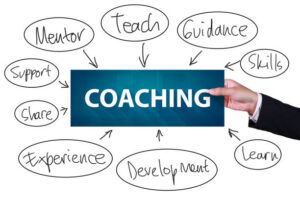What Are the Stages of Addiction Recovery?
Recovering from addiction is a journey that unfolds in stages, each representing a crucial step in moving away from substance dependence and toward long-term health and well-being. Addiction recovery is not just about stopping drug or alcohol use; it involves rebuilding one’s life, learning to cope without substances, and making positive lifestyle changes. For those beginning this journey, understanding the stages of recovery can provide insight and motivation. Here, we’ll explore the typical stages that comprise the path to recovery.
1. Precontemplation Stage
In the precontemplation stage, individuals may not yet recognize that they have a problem. They might feel that their substance use is manageable or not severe enough to warrant change. Denial and resistance are common at this stage. Family members or friends might notice concerning patterns and express their concerns, but individuals may be defensive or dismissive. Education and open conversations can sometimes prompt people in this stage to consider their behavior more critically.
2. Contemplation Stage
During the contemplation stage, the person begins to acknowledge that there may be a problem and contemplates the idea of change. They may weigh the pros and cons of continuing their substance use versus entering recovery. This stage is marked by ambivalence, and it can last for a significant amount of time as individuals struggle with the decision. Support from friends, family, or professionals can encourage a person to move closer to taking action.
3. Preparation Stage
When someone decides they want to make a change, they enter the preparation stage. Here, they may research different treatment options, talk to a counselor, or confide in loved ones about their decision. The preparation stage is often the most motivating, as individuals begin to feel empowered by the prospect of change. This is also when a person might look into various addiction recovery programs, such as residential treatment centers, outpatient programs, or support groups.
4. Action Stage
The action stage marks the beginning of the actual recovery process. This is when a person actively works to stop using substances and engages in formal treatment. Depending on their needs, they might go through detoxification, join a rehab program, or begin therapy sessions. The action stage is challenging, as individuals learn to navigate life without relying on substances. Building a supportive environment and learning coping mechanisms are essential to make the changes sustainable.
5. Maintenance Stage
In the maintenance stage, individuals continue to work on preventing relapse and maintaining the positive changes they have made. Maintenance is a long-term stage, often requiring lifestyle changes, ongoing therapy, and regular involvement in support groups. This phase helps individuals build confidence in their ability to stay sober and manage life without substances. Maintaining sobriety requires self-awareness, commitment, and the development of healthy routines that support a substance-free lifestyle.
6. Relapse and Recycling
Relapse is a common part of the recovery journey and does not mean failure. Individuals may go through periods of sobriety and experience setbacks, but these moments can provide valuable insights into what led to the relapse. Each relapse can reinforce a person’s resolve to continue their recovery. The important factor is learning from these experiences and recommitting to the recovery process, adjusting strategies, and identifying additional support if needed.
7. Resolution and Lasting Recovery
The resolution stage represents the achievement of a stable, substance-free life. It is marked by a sense of confidence and mastery over previous triggers and temptations. Individuals who reach this stage often engage in community support, share their recovery stories, and contribute positively to others who are on similar journeys. Long-term recovery includes building meaningful connections, pursuing passions, and maintaining a balanced life.
The Importance of Support at Each Stage
Support networks play a crucial role throughout each stage of addiction recovery. Whether through professional counseling, group therapy, or family involvement, having people who understand and support the journey makes a significant difference. Programs that offer structured support, like those at a Nasha Mukti Kendra in Pinjore, are valuable resources for individuals seeking lasting change.
Understanding these stages can empower individuals and their families by providing a roadmap to recovery. Each stage serves as a stepping stone, guiding individuals closer to a healthier, substance-free life.














Post Comment